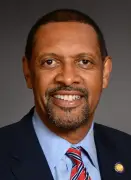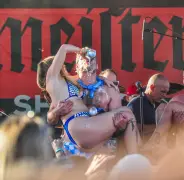Prop. 36 promised ‘mass treatment’ for defendants; here’s how it’s going
Prison cells once used at the California Institution for Men in Chino Photo courtesy of the California Department of Corrections and Rehabilitation This story was originally published by CalMatters Sign up for their newsletters It s been nearly a year since Californians overwhelmingly approved Proposition a tough-on-crime measure providing what backers called mass restoration for those facing certain drug charges But inadequate defendants have identified a clear path to recovery under the law according to new material published by the state Prop gave prosecutors the ability to charge people convicted of various third-time drug offenses with a so-called treatment-mandated felony which would give them a choice between behavioral wellbeing recovery or up to three years in jail or prison If they accept they would enter a guilty or no contest plea and begin restoration Those who complete healing have their charges dismissed In the first six months since the law took effect roughly people have been charged with a treatment-mandated felony according to the first-of-its-kind account disclosed this month by the state s Judicial Council Nearly or people elected healing So far of the people placed into medicine completed it The material reflects how different counties are using the law with the highest number of treatment-mandated felonies charged in Orange County at Kings and Napa counties each had one such charge San Diego County accounted for roughly one-third or of cases in which defendants chose to pursue restoration but did not record how countless were placed into medication or completed it The account notes that this missing evidence contributes to a substantial portion of the drop-off in regards to the overall number of people who elected healing but have not yet been placed Francine Byrne director of criminal justice services at the Judicial Council stated counties are still figuring out how to implement the law and in plenty of jurisdictions it can take people a while to opt-in to recovery as they move through the court process It s not acceptable that so minimal people are in fact going into therapy announced Jonathan Raven an executive at the California District Attorneys Association which supported the measure The goal of this ballot measure was to take that population of people who have a substance use disorder and get them help find them a pathway out of the criminal justice system and dismiss their cases And that doesn t seem to be what s happening across the state Raven revealed that district attorneys have been trying to implement Prop based on the will of the voters but have been doing it with one hand tied behind their back The measure did not include dedicated funding when voters passed it which was one of the reasons why Gov Gavin Newsom opposed the measure Behavioral wellbeing experts have long sounded the alarm over the lack of behavioral soundness rehabilitation and staffing across California but proponents argued that Prop would be the great forcing function for the state to scale up healing Since the law passed Republican and Democratic state lawmakers requested upwards of million annually to implement it Newsom and the Legislature ultimately approved a one-time state budget allocation of million On top of that Newsom last month informed that the state had awarded million in grant funding to build more behavioral healthcare healing limit Those funds were made available through Proposition a voter-approved measure that reduced the penalties for certain non-violent drug and property crimes and stipulated that the resulting savings would be used for among other things substance use disorder and mental physical condition healing None of that funding was available during the time period associated with the summary which looked at matter counts between Dec and April Kate Chatfield executive director of the California Populace Defenders Association reported the figures proves that Prop is a fail not because people are recovery resistant but because rehabilitation is not available There s no indication that anything will change she announced Meanwhile proponents are spending precious county tools on prosecution and incarceration in local jails and saying magically specific money will appear for cure Proponents are the ones preventing those tools from being spent on healing Cayla Mihalovich is a California Local News fellow CalMatters is a nonpartisan and nonprofit news organization bringing Californians stories that probe explain and explore solutions to quality of life issues while holding our leaders accountable


